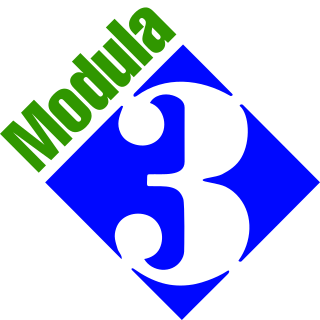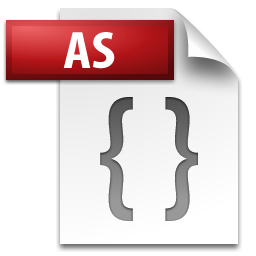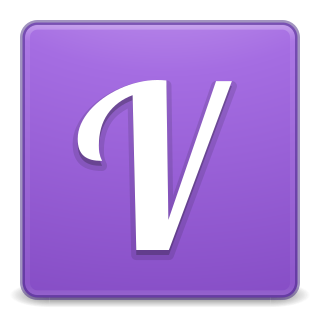Euphoria is a programming language created by Robert Craig of Rapid Deployment Software in Toronto, Ontario, Canada. Initially developed on the Atari ST, the first commercial release was for MS-DOS as proprietary software. In 2006, with the release of version 3, Euphoria became open-source software. The openEuphoria Group continues to administer and develop the project. In December 2010, the openEuphoria Group released version 4 of openEuphoria along with a new identity and mascot for the project. OpenEuphoria is currently available for Windows, Linux, macOS and three flavors of *BSD.
Eiffel is an object-oriented programming language designed by Bertrand Meyer and Eiffel Software. Meyer conceived the language in 1985 with the goal of increasing the reliability of commercial software development; the first version becoming available in 1986. In 2005, Eiffel became an ISO-standardized language.
OCaml is a general-purpose, high-level, multi-paradigm programming language which extends the Caml dialect of ML with object-oriented features. OCaml was created in 1996 by Xavier Leroy, Jérôme Vouillon, Damien Doligez, Didier Rémy, Ascánder Suárez, and others.
Generic programming is a style of computer programming in which algorithms are written in terms of data types to-be-specified-later that are then instantiated when needed for specific types provided as parameters. This approach, pioneered by the ML programming language in 1973, permits writing common functions or types that differ only in the set of types on which they operate when used, thus reducing duplicate code.

Visual Basic (VB), originally called Visual Basic .NET (VB.NET), is a multi-paradigm, object-oriented programming language, implemented on .NET, Mono, and the .NET Framework. Microsoft launched VB.NET in 2002 as the successor to its original Visual Basic language, the last version of which was Visual Basic 6.0. Although the ".NET" portion of the name was dropped in 2005, this article uses "Visual Basic [.NET]" to refer to all Visual Basic languages released since 2002, in order to distinguish between them and the classic Visual Basic. Along with C# and F#, it is one of the three main languages targeting the .NET ecosystem. Microsoft updated its VB language strategy on 6 February 2023, stating that VB is a stable language now and Microsoft will keep maintaining it.
x86 assembly language is the name for the family of assembly languages which provide some level of backward compatibility with CPUs back to the Intel 8008 microprocessor, which was launched in April 1972. It is used to produce object code for the x86 class of processors.

Modula-3 is a programming language conceived as a successor to an upgraded version of Modula-2 known as Modula-2+. While it has been influential in research circles it has not been adopted widely in industry. It was designed by Luca Cardelli, James Donahue, Lucille Glassman, Mick Jordan, Bill Kalsow and Greg Nelson at the Digital Equipment Corporation (DEC) Systems Research Center (SRC) and the Olivetti Research Center (ORC) in the late 1980s.

D, also known as dlang, is a multi-paradigm system programming language created by Walter Bright at Digital Mars and released in 2001. Andrei Alexandrescu joined the design and development effort in 2007. Though it originated as a re-engineering of C++, D is now a very different language. As it has developed, it has drawn inspiration from other high-level programming languages. Notably, it has been influenced by Java, Python, Ruby, C#, and Eiffel.

ActionScript is an object-oriented programming language originally developed by Macromedia Inc.. It is influenced by HyperTalk, the scripting language for HyperCard. It is now an implementation of ECMAScript, though it originally arose as a sibling, both being influenced by HyperTalk. ActionScript code is usually converted to bytecode format by a compiler.
In computer science, type conversion, type casting, type coercion, and type juggling are different ways of changing an expression from one data type to another. An example would be the conversion of an integer value into a floating point value or its textual representation as a string, and vice versa. Type conversions can take advantage of certain features of type hierarchies or data representations. Two important aspects of a type conversion are whether it happens implicitly (automatically) or explicitly, and whether the underlying data representation is converted from one representation into another, or a given representation is merely reinterpreted as the representation of another data type. In general, both primitive and compound data types can be converted.
In class-based, object-oriented programming, a constructor is a special type of function called to create an object. It prepares the new object for use, often accepting arguments that the constructor uses to set required member variables.
In computer programming, an entry point is the place in a program where the execution of a program begins, and where the program has access to command line arguments.
IP Pascal is an implementation of the Pascal programming language using the IP portability platform, a multiple machine, operating system and language implementation system. It implements the language "Pascaline", and has passed the Pascal Validation Suite.

Oxygene is a programming language developed by RemObjects Software for Microsoft's Common Language Infrastructure, the Java Platform and Cocoa. Oxygene is based on Delphi's Object Pascal, but also has influences from C#, Eiffel, Java, F# and other languages.

In computer programming, a comment is a human-readable explanation or annotation in the source code of a computer program. They are added with the purpose of making the source code easier for humans to understand, and are generally ignored by compilers and interpreters. The syntax of comments in various programming languages varies considerably.

Vala is an object-oriented programming language with a self-hosting compiler that generates C code and uses the GObject system.

FutureBasic is a free BASIC compiler for Apple Inc.'s Macintosh.
In computer programming, a function is a callable unit of software logic that has a well-defined interface and behavior and can be invoked multiple times.

TScript is an object-oriented embeddable scripting language for C++ that supports hierarchical transient typed variables (TVariable). Its main design criterion is to create a scripting language that can interface with C++, transforming data and returning the result. This enables C++ applications to change their functionality after installation.
Objective-C is a high-level general-purpose, object-oriented programming language that adds Smalltalk-style message passing (messaging) to the C programming language. Originally developed by Brad Cox and Tom Love in the early 1980s, it was selected by NeXT for its NeXTSTEP operating system. Due to Apple macOS’s direct lineage from NeXTSTEP, Objective-C was the standard language used, supported, and promoted by Apple for developing macOS and iOS applications from 1997, when Apple purchased NeXT until the introduction of the Swift language in 2014.







